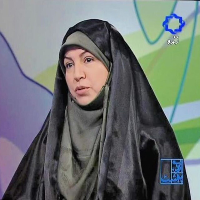A Semantic Study on the Term "Tuba" Based on Paradigmatic and Syntagmatic Relations.
Author(s):
Article Type:
Research/Original Article (دارای رتبه معتبر)
Abstract:
The term "tuba" is only used once in the Holy Quran: Chapter Ar-Ra'd, Verse 29. Yet, no in-depth research has been carried out on the term so far. The former semantic studies about the term revealed ten classifications of various senses of "tuba". And the findings were exactly transferred to the holy Quran commentaries. Throughout history, new senses have been found and added to the classifications. However, it goes without saying that there are serious doubts about some of those findings. Thus, it is imperative to carry out a comprehensive semantic study on the term. "Tuba" is non-Arabic and sounds more like Syriac or Indian. Reviewing the etymology of the term during pre and post-Islamic periods and focusing on verse 29 of chapter Ar-Ra'd lead to the three main senses of heaven, ghebteh (to covet), and happiness. These three senses are known as superior senses that shed light on the term.
Keywords:
Language:
Persian
Published:
Journal Linguistic Research in the Holy Quran, Volume:7 Issue: 2, 2019
Pages:
67 to 84
https://www.magiran.com/p1971445
سامانه نویسندگان
مقالات دیگری از این نویسنده (گان)
-
The Three Meanings of "Nisyān" (Forgetfulness) in the Quran, Emphasizing the Connotative Meaning and Emotional Load in Collocations and Substitutions
Zohreh Akhavan Moghaddam*
Journal of Qur'anic Knowledge, Winter 2024


